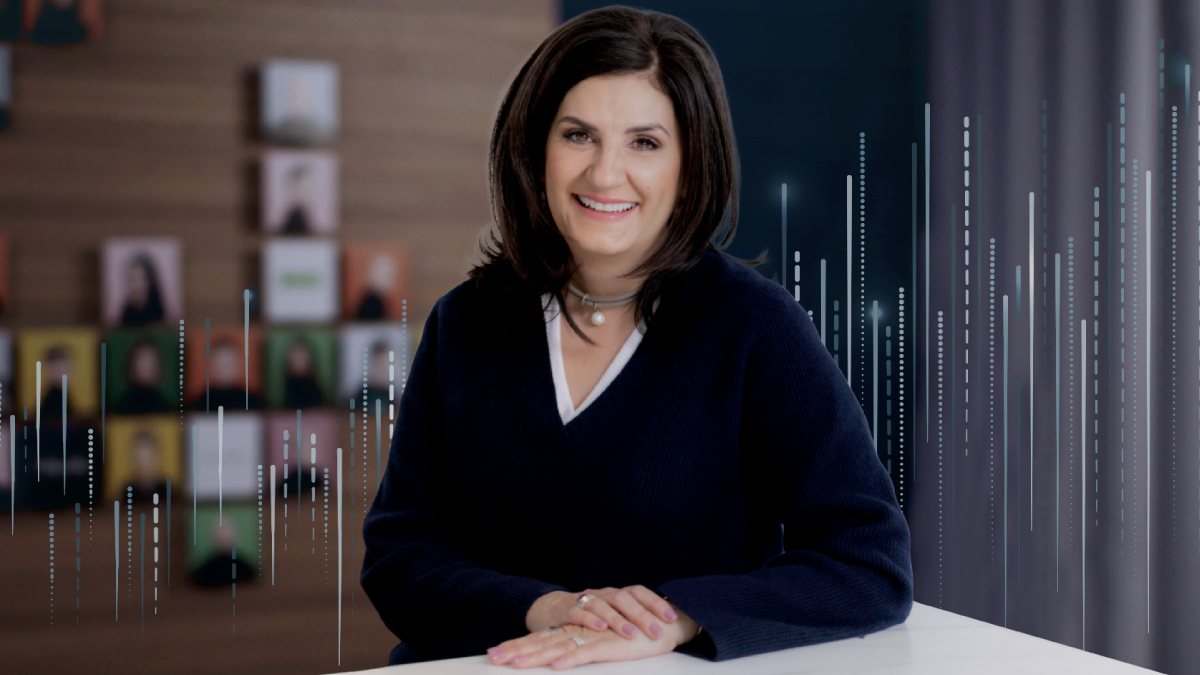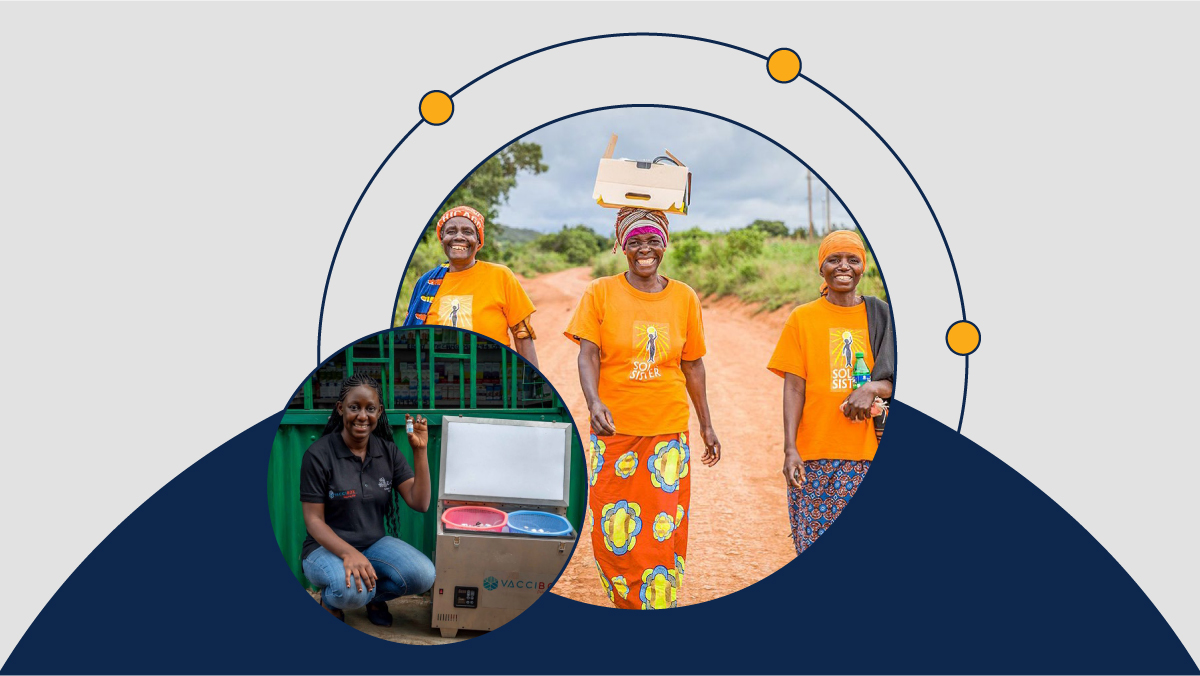Africa is a region of nearly unlimited potential. But with only 40 percent of Africans connected, many millions are shut out from the global economy — and the wider world of ideas and innovation.
With programs like its Networking Academy and Country Digital Acceleration (CDA) program, Cisco has shown a longstanding commitment to empowering Africans with technology, skills, and innovation.
And that commitment to Africa’s people is only accelerating.
We spoke with Fran Katsoudas, Cisco’s EVP and chief people, policy, and purpose officer, on the company’s latest efforts in transforming the continent, including this week’s announcement of a new initiative with the Biden administration to train 3 million more technology workers on the continent in the next 10 years.
Thank you, Fran! Maybe we could start with a few of your own personal thoughts about Africa.
I’ve had the privilege of being the executive sponsor for South Africa for about four years, and for the last few, have taken on leadership for broader Africa. And the word that comes to mind when I think about Africa is opportunity. What I see across Africa is inspiring youth and tremendous opportunities for those young people. In some cases, there’s an opportunity for Africa to leapfrog ahead with new technology. I think the innovation coming out of the continent is remarkable and a great opportunity for us to get access to incredibly talented markets.
In what ways is the digital divide holding Africans back?
When you’re not connected, you don’t have access to economic markets, to education, to healthcare, even to one another in some situations. And when we look across the U.S. and Europe, we see that about 80 to 90 percent of the population is connected. But on average, only 40 percent of the population in Africa is connected. And what that tells us is that the majority of people are being left behind and unable to contribute, in so many different ways. I think that becomes a huge opportunity for the continent and for the individual countries.
A lack of skills and training is a big contributor to the digital divide around the world. How has the Cisco Networking Academy empowered Africans over the years?
It’s a really beautiful story. Since the inception of our Cisco Networking Academy, we have trained 1.6 million students across Africa, within 53 countries. Almost 500,000 of those students are women. On my first trip to Nigeria, I went to a school where 44 percent of the students were women, and they were showcasing how IT could intersect with agriculture. And this is where I saw some of the amazing innovation that young people have to offer, and the opportunities that exist across the continent. I could see that the students were ready to leverage technology to solve some of the biggest issues that exist.
Let’s talk about this week’s announcement. Cisco’s partnering with the U.S. government to help train 3 million Africans over the next ten years. How did that partnership come about?
It’s something we’re super excited about. I am really fortunate to sit on President Biden’s Advisory Council on Doing Business in Africa. This is something that I’ve recently stepped into, and the dialogue around skills is front and center. In the work that I’ve done with our amazing team in South Africa, we see the government recognizing that investment in security, as one example, is a way not only to help the country, but to help people access new and empowering careers in tech. And this commitment that we’re making to train 3 million students will have a great impact on innovation and growth within those countries. Cisco also invests in a lot of these incredible young entrepreneurs, for example through our Cisco Youth Leadership Award.
When you empower people with technology skills, it always has an impact far beyond the tech industry.
Yes, and I’ll highlight just a couple of examples that we know are so important. One is healthcare. As we talk to leaders around the globe, the realization is that the intersection of technology and healthcare is really all about access for people. There’s a realization that through tech, doctors can get to more patients in all different corners of the world. That’s truly life-changing for so many people and communities. Another example is sustainability. We see a lot of innovative ideas for farming coming out of Africa, and we’ve seen some really powerful plays around solar energy. And so, there’s this realization that through technology, they’re going to have the ability to scale, to build markets and businesses that can be quite profitable and helpful for communities as well.
Speaking of innovation, how can Cisco continue to impact Africa on the technology front?
I would say from a technology perspective, everything that we are doing to drive secure connections will be absolutely meaningful. And the fact that our tech is also becoming more and more energy efficient will be powerful. What we’ve heard from heads of state across Africa is that there is a significant focus on security. They absolutely want our help in setting up networks that are secure, ensuring that schools are connected to drive learning for all and so much more. What’s so beautiful is that with our purpose to power an Inclusive Future for All, we can take our technology and work hard to create a level of accessibility and participation for the people across Africa.
You mentioned connecting with heads of state. Cisco’s Country Digital Acceleration (CDA) program engages with national leaders on a wide range of digitization efforts in regions like Africa.
If you look at CDA, we are present now in 48 countries around the world. We have over 1400 projects that have been successful. And in doing so, we create use cases to address some of the biggest challenges that exist. What these leaders across the globe see in Cisco is a true drive to partner in problem-solving, to live out our purpose in creating an Inclusive Future while helping these countries build businesses and markets that are stronger for their citizens. That’s so exciting. And I think a lot of that work will show up here in Africa over the next five to 10 years.
In your role, you have a great perspective on the many great things that Cisco is doing for the world. What excites you about what the company can continue to accomplish?
I think we are proving that corporations can do good and have incredible businesses. A lot of what we’ve done--addressing the digital divide, social justice, inclusion, and sustainability---these are things that both companies and governments are focused on addressing. And when there is trust and a willingness to solve issues, amazing things can happen. As a company we have always been committed to the communities around us, and this is a moment for us to lead and participate. We can leverage our learnings, the good that we have done internally and externally, and our technology to drive tremendous impact.
###



